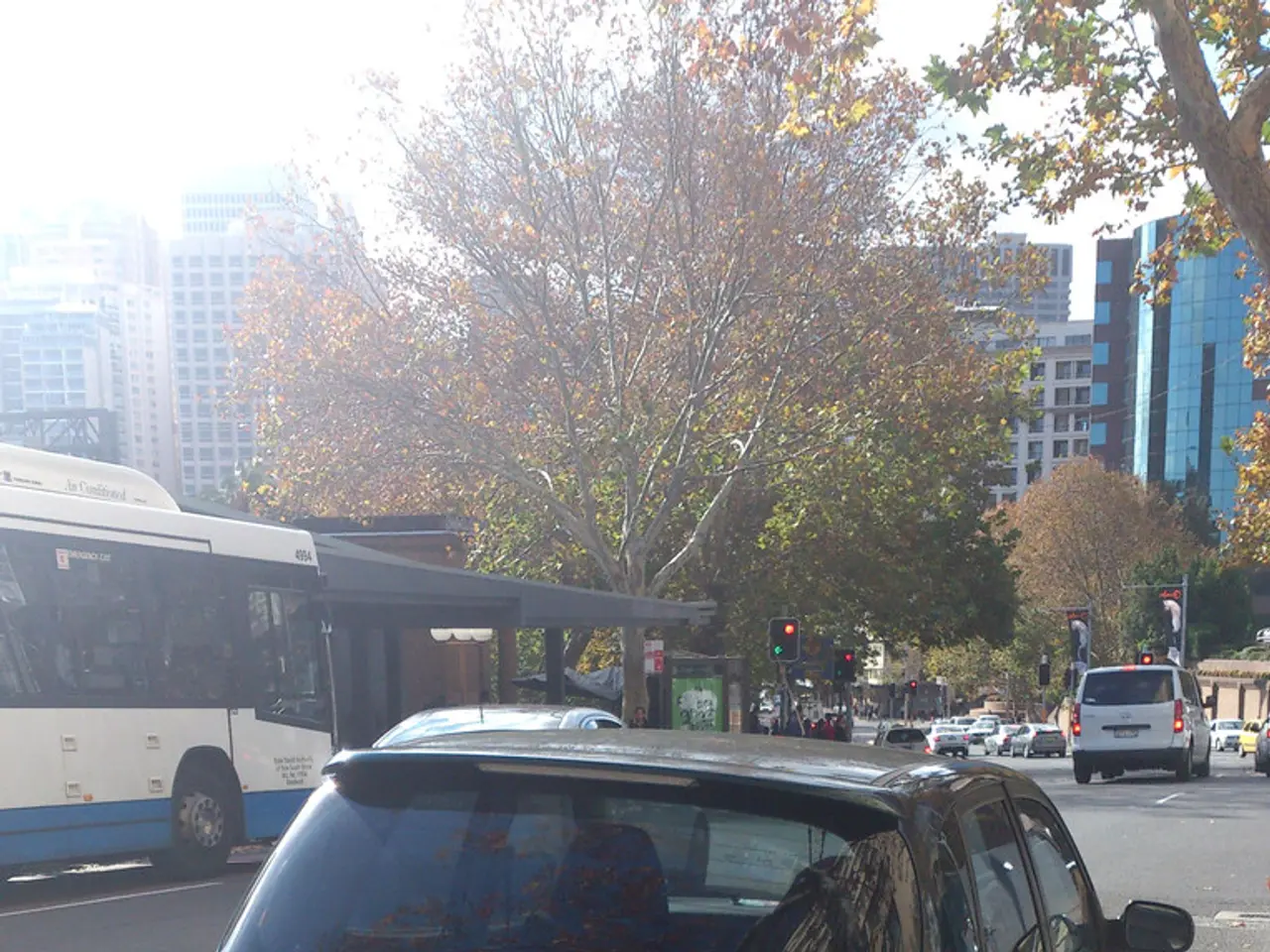Unauthorized Vehicles Swarming Delhi's Fuel Stations: Over 30 Million Vehicles without PUCC Identification Called Out, Fines Totaling ₹168 Crores Levied
In the heart of India, Delhi, one of the world's most polluted urban zones, is taking significant strides to combat air pollution. The city's authorities are enforcing environmental norms more rigorously, marking a shift towards continuous digital enforcement.
The crackdown on non-compliant vehicles is part of a broader effort to reduce air pollution. For owners of older vehicles, particularly diesel models, the data-driven enforcement reinforces the need for transitioning to newer, cleaner vehicles or scrapping outdated ones. This development may lead to increased demand for vehicles with clear documentation and longer usability in the used car market.
The enforcement actions are made possible by the deployment of an Automated Number Plate Recognition (ANPR) system active at 500 out of 520 fuel stations across the city. The figures obtained from this system show that approximately 30 lakh vehicles in Delhi have been flagged for not having a valid Pollution Under Control Certificate (PUCC), with approximately 4.9 lakh vehicles identified as overage or End-of-Life (EOL) vehicles.
The Ministry of Road Transport and Highways (MoRTH) is responsible for implementing ANPR systems, including those integrated in large-scale projects such as toll plazas and presumably fuel stations across India, including Delhi. The ANPR cameras installed are significant for enforcing vehicular norms as they allow real-time detection of vehicles lacking necessary documentation, including PUCC and vehicle age-related compliance.
Vehicle owners in Delhi are required to hold a valid PUCC, a document certifying that the vehicle meets emission standards. A valid PUCC, which is affordable and easy to obtain, can help vehicle owners avoid penalties. The remaining 20 fuel stations in Delhi will soon integrate ANPR systems, further enhancing surveillance.
Repeat violations can result in higher fines, suspension of registration, or even vehicle impoundment. Authorities have issued fines worth ₹168 crore due to PUCC-related violations. These EOL vehicles continue to operate despite being legally banned within Delhi's borders.
Industries such as auto-service centres, PUCC testing kiosks, and scrap vehicle processors may experience a surge in demand as more vehicle owners become compliant or exit old assets. The enforcement actions may have implications for the used car market, particularly for vehicles nearing or exceeding the EOL thresholds.
Vehicle owners in Delhi are advised to ensure timely emission checks to avoid heavy fines and legal action. The efforts to enforce environmental norms are a testament to Delhi's commitment to combating air pollution and ushering in a greener, cleaner future.
Read also:
- Peptide YY (PYY): Exploring its Role in Appetite Suppression, Intestinal Health, and Cognitive Links
- Toddler Health: Rotavirus Signs, Origins, and Potential Complications
- Digestive issues and heart discomfort: Root causes and associated health conditions
- House Infernos: Deadly Hazards Surpassing the Flames








